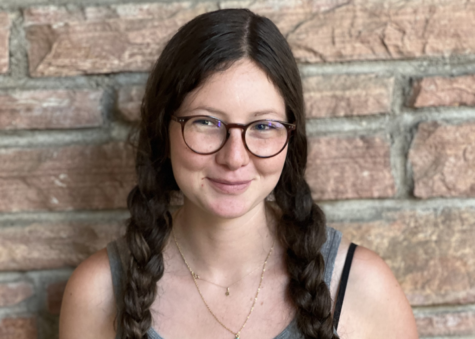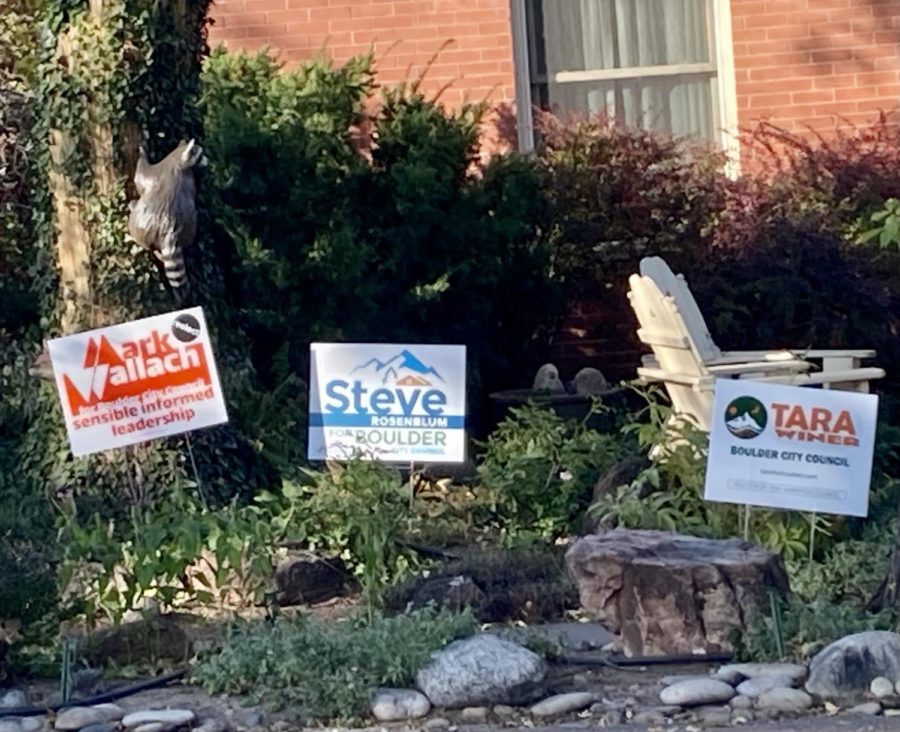Local Elections ’21
A Breakdown
Months before the election, Boulder residents prominently displayed their support for City Council Candidates.
Local elections are often the most forgotten exercises of democracy, especially when they occur in off-years, and require a good understanding of ballot language to read. However, they are perhaps more pivotal than midterm or even presidential elections for the simple reason that a vote is worth far more when it’s 1 out of 238,559 votes than 1 out of 131,610,000 votes. Boulder County proves to be a particularly interesting place for local elections since federal elections are not divisive- in 2020, 77.19% of voters selected the Biden/Harris ticket. Instead, local elections foster debate and show the hundreds of opinions within a microcosm of political belief.
The election took place on November 2nd, and all results were verified on November 22nd.
City Council
Mark Wallach* (13.07%)
Matt Benjamin (12.20%)
Nicole Speer (12.04%)
Lauren Folkerts (11.65%)
Tara Winer* (11.24%)
*Candidates endorsed by Safer Boulder
Of the five seats up, only one incumbent, Mark Wallach, ran for reelection. All candidates are registered Democrats, but were by-and-large broken down into two groups surrounding the controversial issues of the housing crisis & how the city should interact with its unhoused population.
Each group was defined by its primary endorser- either Safer Boulder or the Boulder Coalition. Safer Boulder based its endorsements on if the candidate supported the Boulder camping ban, opposed “Defund the Police,” and “treating Chief Harold and other [Boulder Police Department] representatives on exp[e]rts on public safety.” The Boulder Coalition didn’t have specific requirements for its endorsements; instead, the group described its goals of Boulder being a place for all to live, instead of only the wealthy who could afford the rising housing prices. All of its highlighted candidates also received endorsements from the Sierra Club.
Both groups only endorsed four candidates, despite it being a five seat race. Two candidates were not endorsed by either party; neither was elected.
At the end of the day, it seems like the vote for that fifth seat, which required voters to overlap groups, was where the results actually mattered (and why these new seats are a mix of ideologies).
Question 300 – Bedrooms Are For People
No (52.33%)
This ballot initiative challenged the law that only three or fewer unrelated people could live in the same house at once. It aimed to make housing more accessible & affordable, reduce emissions by reducing the amount of people who have to commute into Boulder and object to a law that allegedly violates the Fair Housing Act. Opponents (“No on Bedroom$”) claimed that investors would benefit the most from overturning the law, and that the Hill (where the law is null due to high student housing) is negatively impacted by not capping residencies at three people.
Question 301 – Fur Ban
Yes (51.01%)
The fur ban will do exactly what it sounds like- banned the sale of fur in Boulder. It allows for certain exemptions, like Indigenous rituals, used items, and fur that can be humanely harvested (such wool). Critics said that it was poorly written (which would affect what was actually banned), would harm local businesses and would encourage fast/plastic-driven fashion.
Question 302 – CU South
No (56.78%)
This initiative would have halted the annexation (adding to city property) of CU South and asked voters to vote on it themselves. In other words, it had citizens vote on if they should vote on this issue; if it passed, there would have been another vote in the next election to see if the issue itself passed or not.
Proponents (“Save CU South”) said that passing this would be more democratic, and that stopping the annexation would stop “inadequate, expensive flood mitigation” and would mean less traffic. Opponents (“Protect Our Neighbors”) said that the annexation protected Open Space, implemented flood control that had been in motion since the flood of 2013, and supported CU-sponsored affordable housing units.

Hannah (rhymes with fauna!) Cohen is ecstatic to be working on the Owl for her third and final year. She loves stories in all their forms, but she mostly has opinions on obscure podcasts and which New York Times opinion columnists are defacing the good name of journalistic analysis. When not busy with stumbling through sheet music, editing nonfiction for jGirls+ Magazine, or seeking out the cheapest bluegrass venue, Hannah enjoys wandering around the mountains with her friends and lovely labradoodle. Although she's slightly preferential to the sweeter, more robust taste of red grapes, she knows that the bliss of biting into a crunchy grape transcends color.


